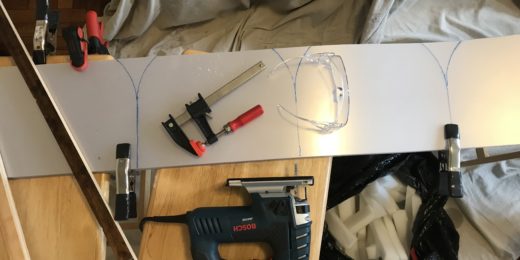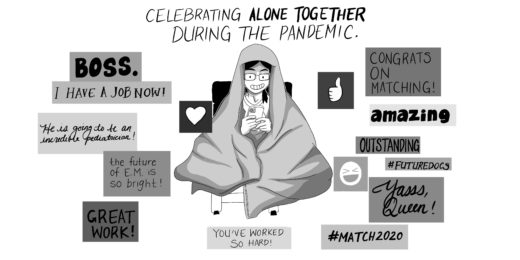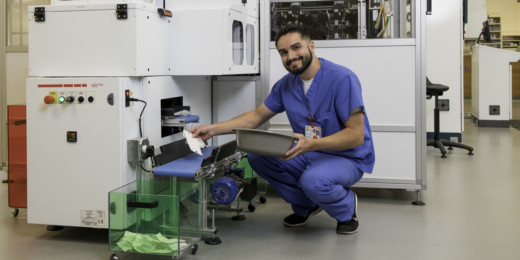Graduate students who are trying to finish their degrees amid the COVID-19 pandemic are finding, after years of research and months of preparation, that the big day of defending their thesis has to be delayed or done remotely.
Faced with a new order to shelter at her off-campus home, Anjali Bisaria, a graduate student in chemical and systems biology at Stanford, decided to forge ahead. She works in the lab of Tobias Meyer, PhD, where they study how human cells move and divide to build, maintain and repair tissues and organs.
On the scheduled date and time, Bisaria logged into a Zoom session and defended her research to a virtual audience of advisors, classmates, friends and family members. She then virtually met with just her faculty examinees. After being declared a doctor, she celebrated with her lab via yet another Zoom session.
"I know it was the right thing to do to keep the community safe," she said in a Stanford news story. "But it was a little bit sad because this is likely my last quarter on campus. So to not be able to interact with my classmates and not be able to enjoy that honeymoon phase of grad school felt unceremonious."
Soon, microbiology and immunology graduate student Kali Pruss will face the same decision. Her in-person PhD oral is currently scheduled for May 22 at Munzer Auditorium on Stanford campus.
"I haven't yet decided whether I'll proceed with my defense via Zoom or delay my defense to later in the summer, in hopes that I would be able to have an in-person defense," Pruss told me. "I was planning on staying through the summer, taking a writing quarter anyway. Thankfully, this gives me some flexibility in terms of timing."
As a member of the lab run by Justin Sonnenburg, PhD, Pruss studies how Clostridium difficile -- a bacteria that commonly causes diarrhea and colitis -- adapts to the inflammation that it generates, she said.
Pruss is currently writing a paper on her research, but the pandemic is impacting that too. She told me that she's doing more data analysis and relying less on experiments than she normally would -- and she's a bit worried about how this approach will be received.
"I'm concerned with how this is going to affect the review process and whether I'll be able to successfully address reviewer comments asking for additional experiments for my papers," she said.
She added,
Ultimately, though, I feel incredibly privileged and grateful to be able to continue working remotely towards my dissertation. The question of how my research is being impacted, and whether to postpone my defense, has been a minor concern in the scope of what is currently happening at Stanford and around the world.
Given the extension of the Bay Area's shelter-at-home order to last through at least May 3, Pruss's hopes of defending in-person on May 22 may not be realized. So, her extended family -- from Wisconsin, Indiana and Illinois -- canceled their travel arrangements. They hope to visit in late summer if she delays her defense and sheltering orders have been lifted.
Regardless of how she defends her thesis, Pruss plans to celebrate her upcoming educational milestone.
"This is the one time we, as PhD students, get to celebrate our time in grad school as an accomplishment," she said.
After graduation, Pruss plans to join Jeffrey Gordon's lab at Washington University School of Medicine in St. Louis as a postdoc. Ultimately, she plans to run her own academic lab.
Photo by Anjali Bisaria






